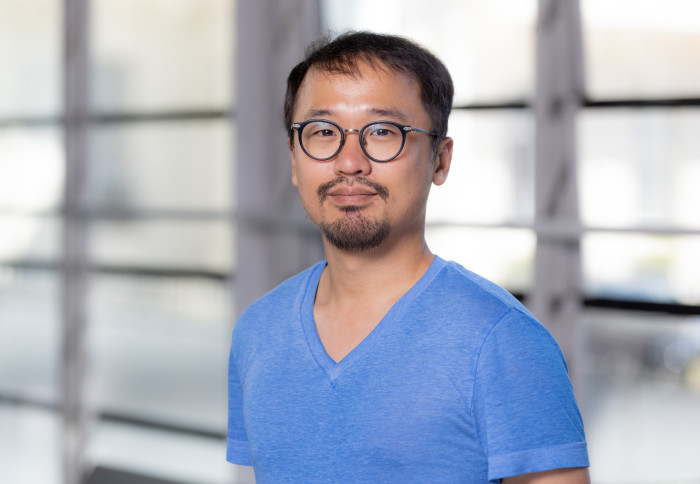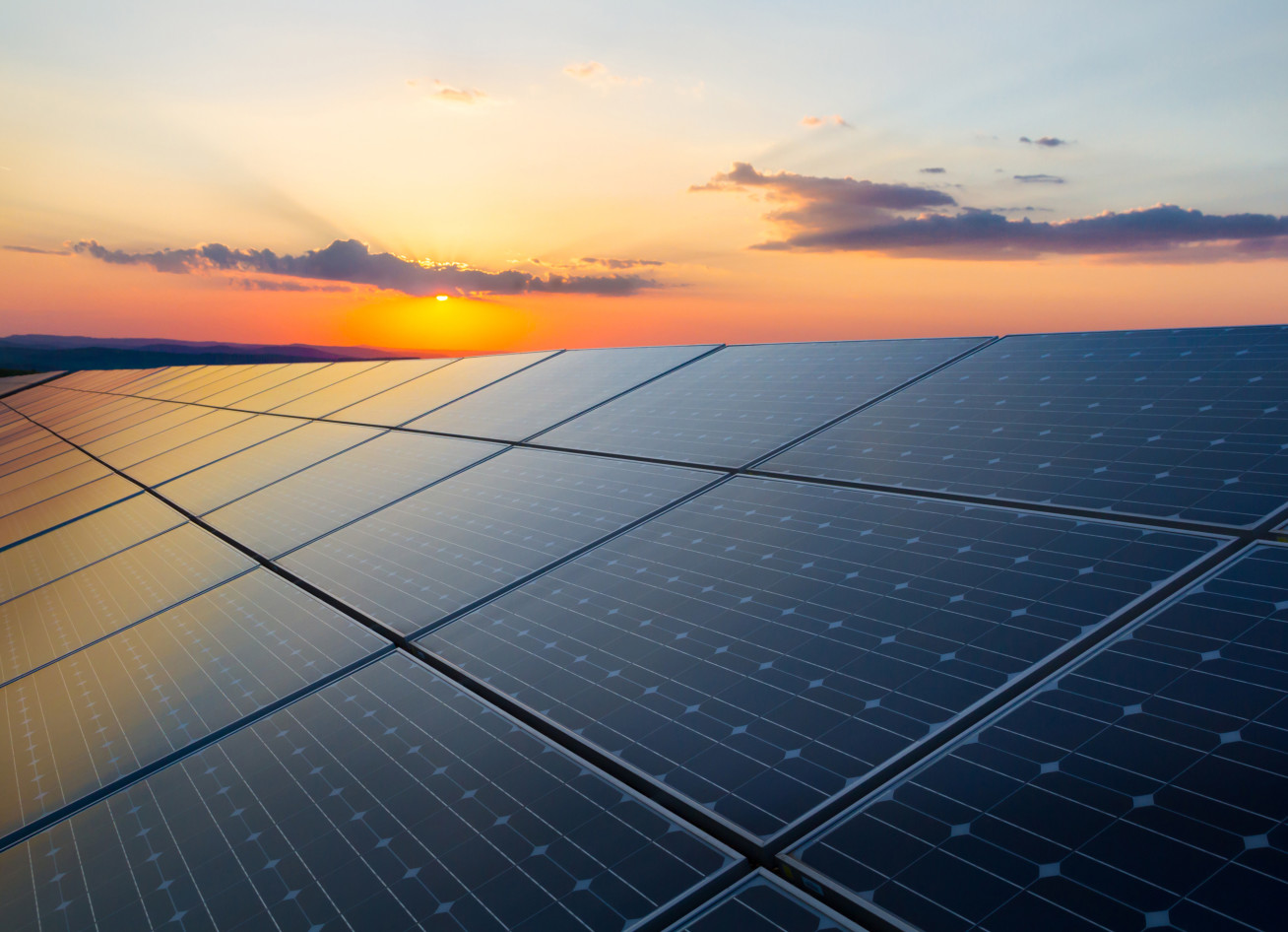Meet the E4F Fellow using machine learning to find next-gen solar materials

Energy Futures Lab spoke to Dr Suhyun Yoo about his research and his experience of the E4F Fellowship at Imperial.
Although humans have depended on the power of the sun for as long as they have existed, the conversion of sunlight into electricity is a relatively recent innovation, the first useful photovoltaic devices having only been developed in the 1950s.
Despite slow progress in the early years, solar panels have since improved enormously in terms of both performance and cost, making them a serious player in the energy mix of many countries. Globally, photovoltaics now meet around 4% of all electricity demand and that share is expected to grow significantly in the coming decades.
There are, however, limits to the performance of silicon-based solar devices and efficiency gains have plateaued in recent years. With demand for clean energy on the rise, the hunt is now on for alternative materials that can convert the sun’s energy into electricity more efficiently and sustainably.
It’s a challenge that drives the researchers of the Materials Design Group at Imperial College London. Led by Professor Aron Walsh, the group, part of the Thomas Young Centre, uses high-performance computing to design and optimise materials for a wide range of clean energy technologies.
To achieve higher efficiencies, we need new photovoltaic materials. The main objective of my work is to help find these new materials by using a combination of quantum mechanics calculations and machine learning approaches. Dr Suhyun Yoo E4F Fellow, Imperial College London
Among its researchers is Dr Suhyun Yoo. He joined Imperial in 2022 on an Energy for Future (E4F) fellowship, funded through the Horizon 2020 Marie Sk?odowska-Curie Actions-COFUND programme and led by Fundación Iberdrola España, a foundation established by the Iberdrola Group.
“We need more efficient photovoltaic devices,” he explains. “Right now, the maximum efficiency of these devices is around 20% in most cases or more than 30% for more complex devices, but that won’t be enough if we want solar to meet 70% of global energy demand by 2050, as many reports suggest we should.
“To achieve higher efficiencies, we need new photovoltaic materials. The main objective of my work is to help find these new materials by using a combination of quantum mechanics calculations and machine learning approaches.”
By using both techniques together, it is possible to cut down on the enormous amounts of computing power required to conduct quantum mechanics calculations and find materials with suitable properties more quickly.
Why Imperial?
Suhyun first studied materials science in his native South Korea but joined Imperial from the Max-Planck-Institut für Eisenforschung GmbH, a materials research institute in Düsseldorf, Germany, where he worked as a researcher after completing his PhD at the Ruhr University Bochum.
His background was in quantum mechanics; he says he is still new to the field of machine learning, but his current work gives him the opportunity to apply his own expertise while learning and applying new techniques, something he finds very exciting: “I feel that I am an expert and a learner at the same time.”
Being part of the Materials Design Group at Imperial has exposed him to new ways of thinking about materials research: “Professor Walsh’s group is a big group. Everyone is doing computational materials science, but they have different objectives and they are taking many different approaches”.
The E4F scheme, coordinated at Imperial by Energy Futures Lab, the university’s global energy institute, supports researchers to work on projects focused on the main technologies associated with the energy transition and the green transformation of the economy, one of the strategic pillars of the Iberdrola Group.
“Iberdrola Group is one of the world’s leading energy companies, which is spearheading the transition to a low-emission economy,” says Teresa Rodríguez de Tembleque, Head of Social and Training & Research Programmes at Fundación Iberdrola España.
“Over the past two decades, we have invested some €120bn in the roll-out of a sustainable energy model and we’re proud to be supporting groundbreaking clean energy research through the E4F programme.”
Since taking up the fellowship, Suhyun has become more convinced of the need for a rapid and transformative energy transition, and he is pleased to be making a contribution towards it, but he also says the scheme has other benefits:

“This fellowship has enabled me to have some great experiences and to interact with other researchers in ways that would not have been possible otherwise. Recently, I was invited to Spain to participate in a gathering of all the fellows on the programme, and I also got to meet the King of Spain!”
On a practical level, Suhyun says the fellowship is generous enough to support a family living in London, something which was important to him: “London is a very active city and Imperial is one of the top universities in the world, so I was really interested in coming here, both from the research perspective and from a personal perspective”.
Suhyun’s time at Imperial is now coming to an end and he will soon return to South Korea to further develop his career at the Korean Research Institute for Chemical Technology, for which the fellowship has proven a helpful steppingstone.
“I would encourage other researchers with an interest in clean energy technologies to explore the E4F Fellowship programme,” he says. “It has been a wonderful experience.”
Find out more about Imperial’s E4F Fellows here and visit the programme’s website.
Article text (excluding photos or graphics) © Imperial College London.
Photos and graphics subject to third party copyright used with permission or © Imperial College London.
Reporter
Conor McNally
The Grantham Institute for Climate Change